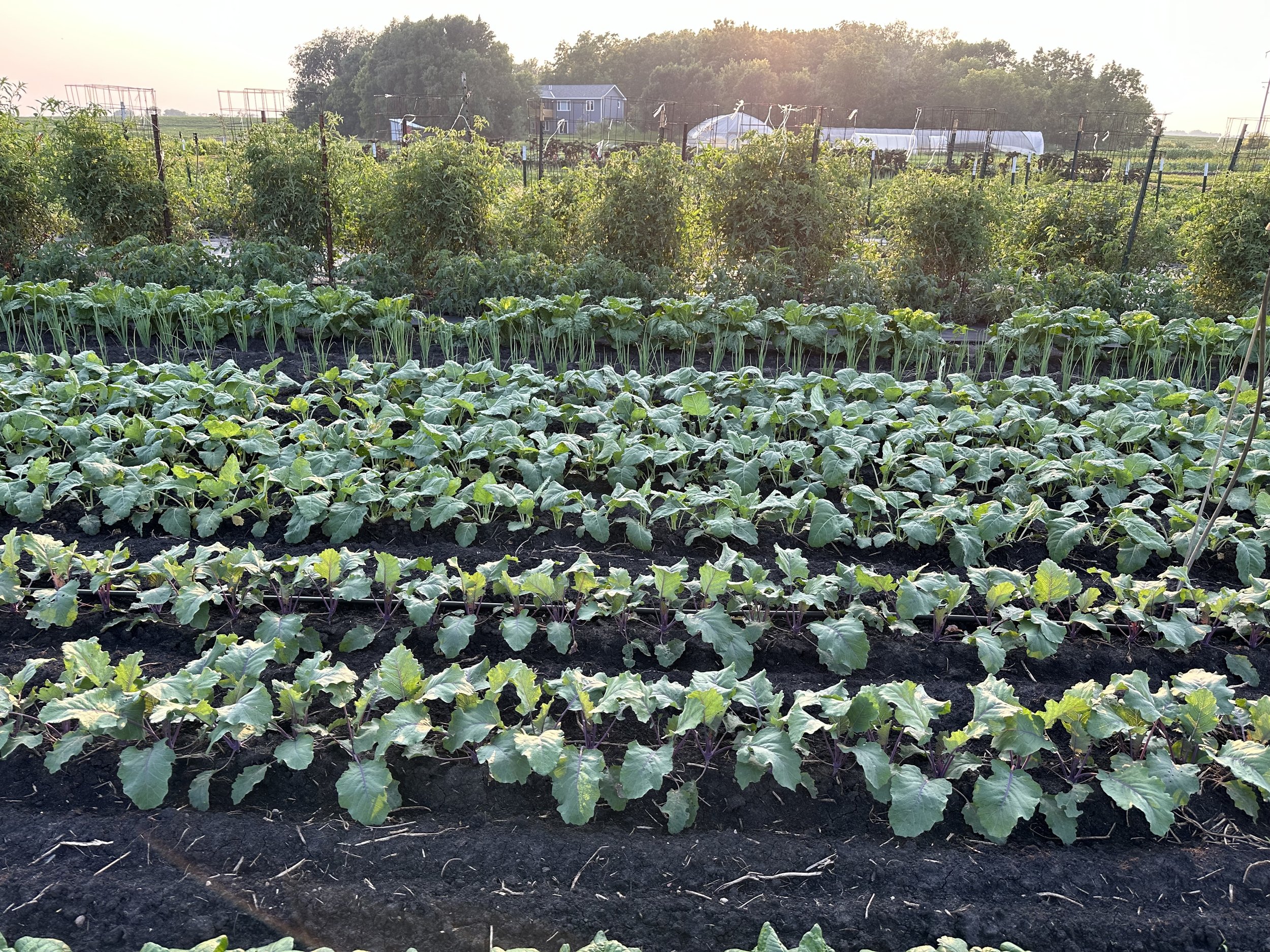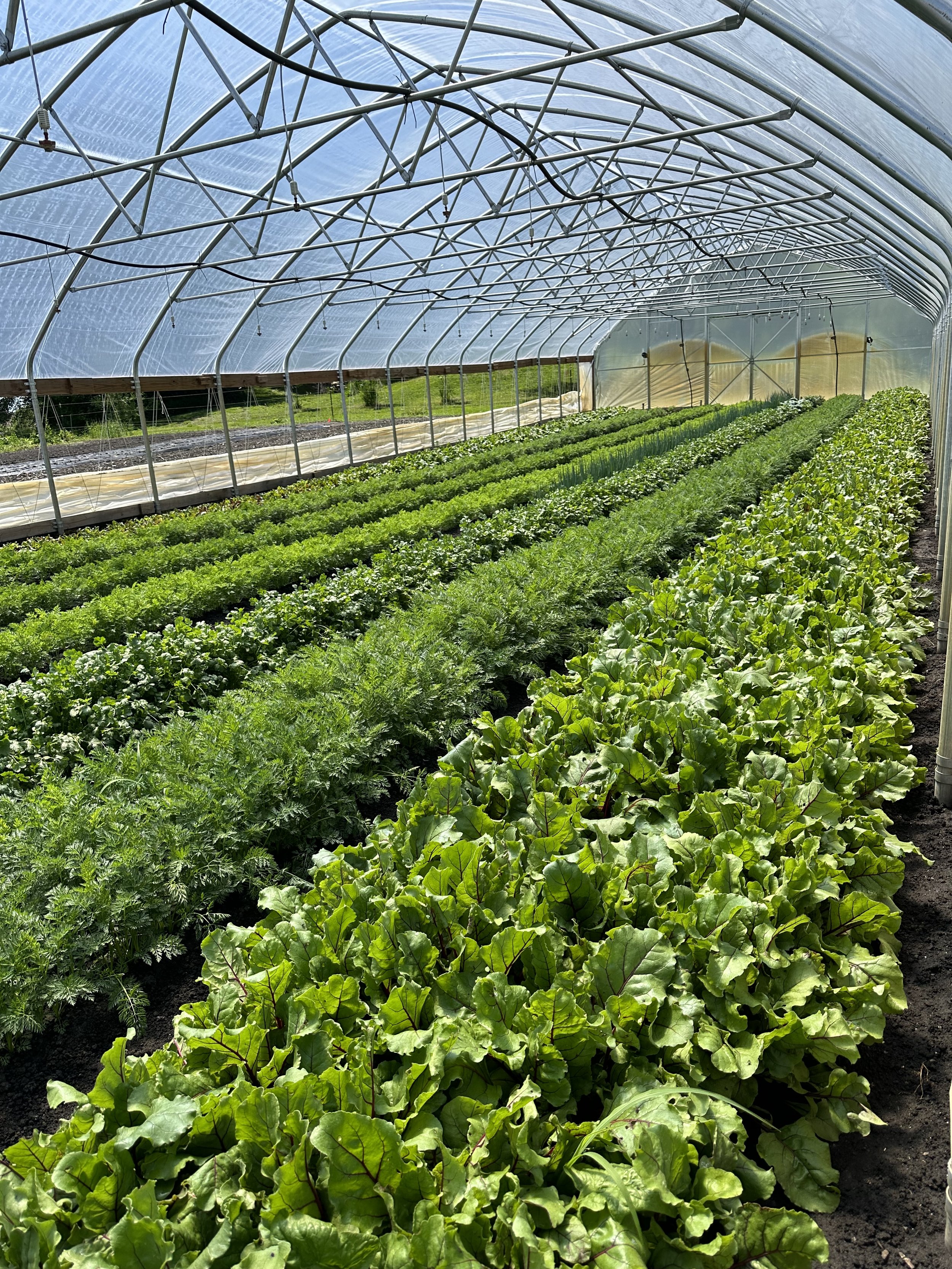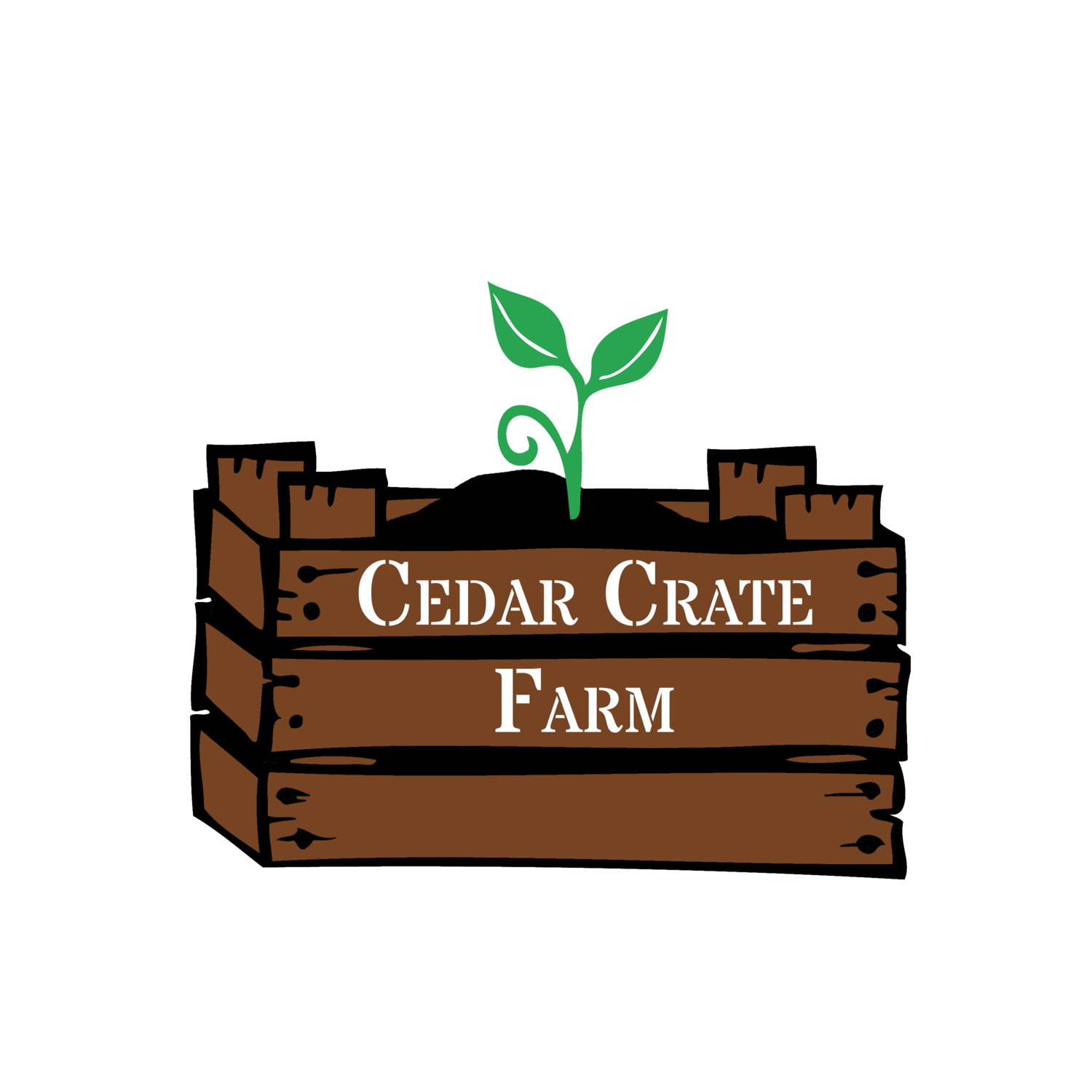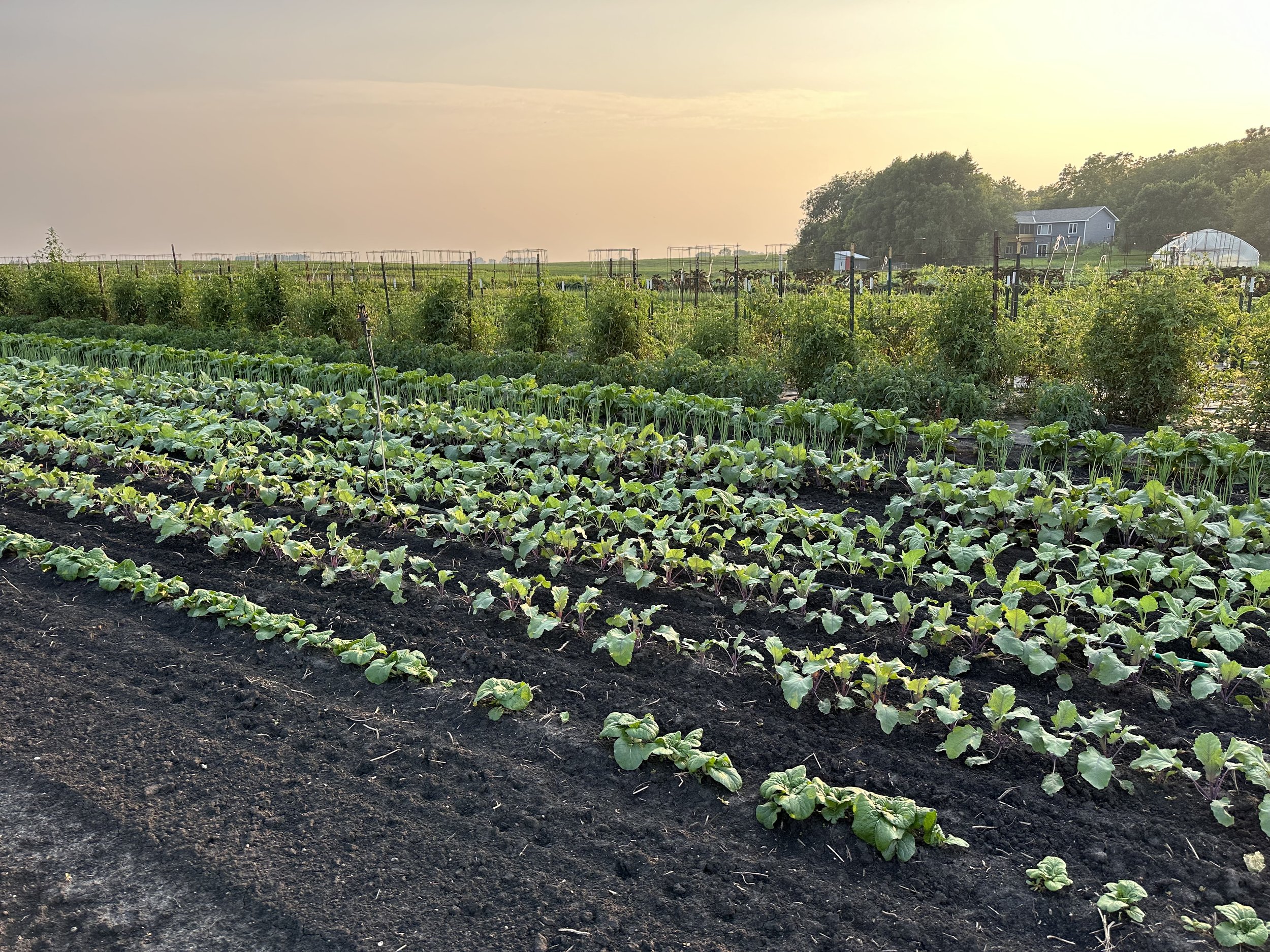
Meet Your Farmers
We’re Dan & Lara Zimmerli and we’re your farmers! We love our jobs. There’s really nothing more satisfying for us than nurturing a seed to become delicious, healthy, nutrient dense produce that we can share with our community. We built Cedar Crate Farm out of a love of food and farming with a goal to share healthy, sustainable produce with our community.
We’ve come a long way since Cedar Crate Farm began in 2015. We started with just eight CSA members but we’ve quickly grown to over 100 members! Our farmers market presence has grown as well. We’re known for our wide selection of produce, our lettuce mix which lasts an absurdly long time in your fridge and our attractive market display!
Our goal with Cedar Crate Farm is to produce the highest quality produce in the area using organic and sustainable practices. We believe that by using sustainable practices like planting cover crops, companion planting and crop rotations that we can eliminate the need for chemicals and produce healthy, nutrient dense produce.
Food is fundamental, we all need it to survive. It's our belief that food should be high quality, local, and sustainable. Food should come from a farmer you know and be produced without synthetic chemicals.
Our Sustainable Farming Practices
Cover crops
Cover crops are one of our favorite sustainable tools to use. A cover crop is a plant species or mixture of plant species that are planted without the intention of harvesting them. Instead they are used for their beneficial properties such as adding organic matter back to the soil, attracting beneficial insects, or even adding some nutrients back to the soil!
We use a variety of cover crop mixes depending on the time of year and our goals for the cover crop. Our mixes have 2-8 different species of cover crops to enhance diversity and provide more benefits.
A couple of our favorite cover crops include buckwheat, oats, and winter peas. Buckwheat is great because it grows well during the heat of the summer and it grows quickly which allows us to get maximum benefit in a shorter period of time. Oats and peas are great because they grow well even when it gets cold allowing us to plant them into the deep fall.
Crop Diversity and Crop Rotation
We plant over 90 varieties of produce on our farm. Everything from radish to tomatoes to peas and potatoes are grown here on our farm. It’s an incredibly diverse spread and especially so when you consider that the vast, vast majority of farmland in southern Minnesota is used for just two crops: corn & soybeans.
Diversity is one key to sustainability on our farm. Because each variety of crop has different nutrient needs we’re able to rotate our crops around to optimally use those nutrients. Additionally, some crops give back to the soil such as peas and beans which are able to pull nitrogen from the air and store it in the soil.

Varieties selected for flavor
Our seeds are selected for flavor first! Nearly all of the produce you find in the supermarket are varieties that are chosen for the ability to be shipped and their shelf life. Unfortunately, the side effect of this is lost flavor. That’s why we always select our seeds that have the best flavor!
You’ll also find that because our produce is picked fresh weekly and packed straight into CSA shares or brought to our farmers market stand that our produce lasts longer in your fridge. Our lettuce mix, as just one example, lasts between 1 and 2 weeks in your fridge!
Reduced & Strategic Tillage
Tillage has become a bit of a dirty word in the sustainable ag world but it can be used effectively without damaging the environment. On our farm, we use tillage to prep seed beds before plantings and when required use it to break up compacted soils. We seek to minimize the use of tillage. We also seek to incorporate cover crops so that we can help the soil heal after a tillage event.
Shown here is a chisel plow tillage pass. Chisel plows are better than old fashioned moldboard plows in that a chisel plow doesn’t completely invert the soil leaving some structure intact. Chisel plows also don’t completely eradicate cover crops which leaves the soil more protected than a moldboard plow.

No GMOs!
We do not plant ANY GMO crops on our farm.
We’re not inherently against GMO technology which is essentially an expedited way of adding a trait to a plant that is desirable. What we are against is GMO crops that allow for the use of more synthetic chemical pesticides & herbicides. GMOs have made it far too easy for farmers to spray millions of gallons of these pesticides across millions of acres of farmland. There’s no moderation or selection here, just blanket application and we think that’s bad for human health and environmental health.




